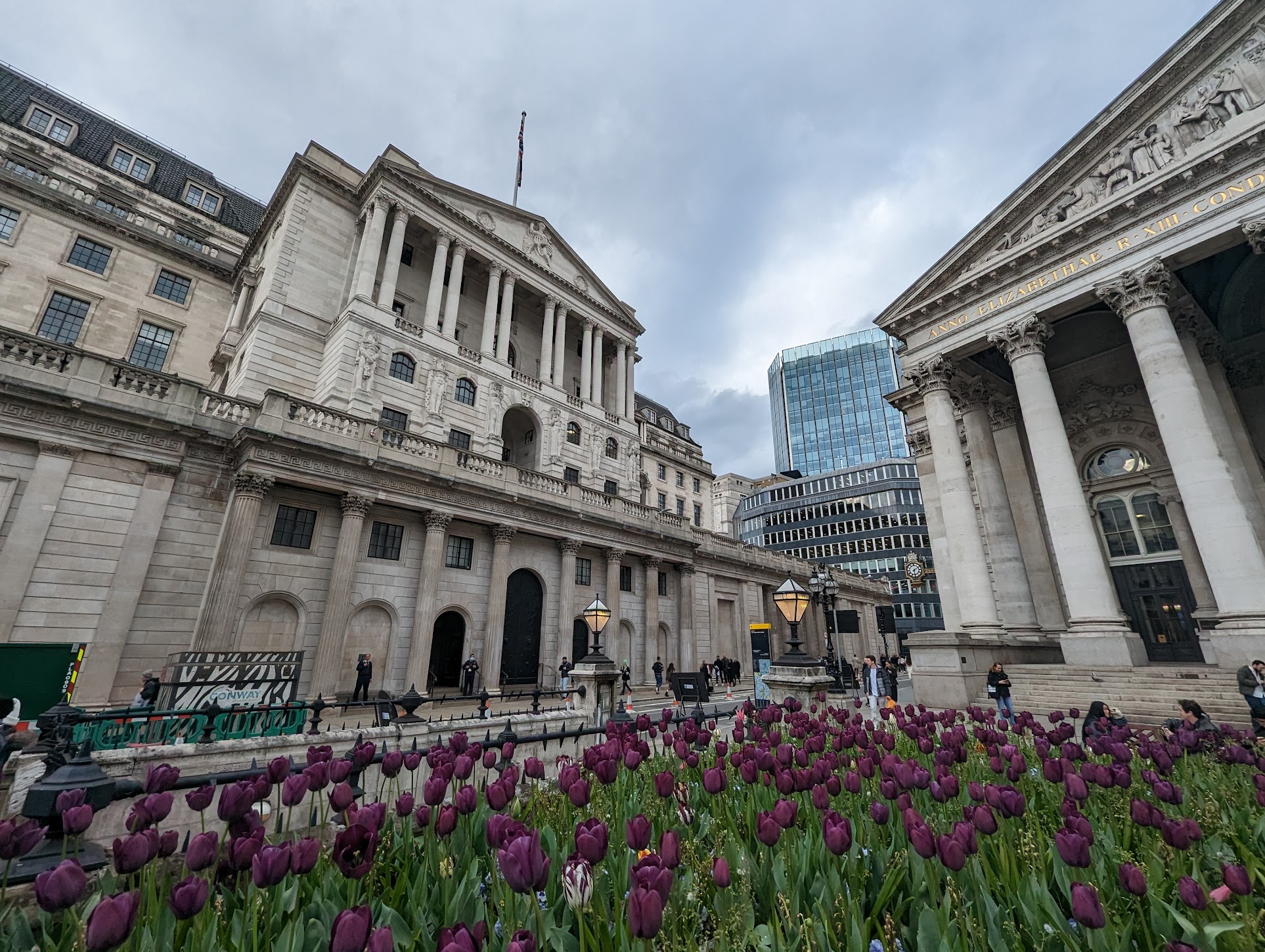Unexpected dip in August CPI inflation sparks interest rate debate

Pictured: The Bank of England (credit: George Iordanov-Nalbantov)
Amidst anticipations of a rise following an upturn in petrol prices and a hike in alcohol duties in August, the Consumer Price Index (CPI) inflation has surprisingly decreased to 6.7%.
This unexpected downturn was accentuated by significant reductions in core and services inflation, hinting that the underlying inflation rate might be pivoting.
Analysts believe this may bring an end to the Bank of England’s rate hikes.
Martin Beck, chief economic advisor to the EY ITEM Club, said: “A rise in petrol prices between July and August this year, versus a fall in the same period in 2022, and an increase in alcohol duties meant that forecasters had uniformly expected CPI inflation in August to break what had been a downward trend since early 2023.
“But the latest data delivered a significant downside surprise, with the CPI measure falling to 6.7% from 6.8% in July, versus consensus and Bank of England predictions of a rise to 7.1%.”
He continued: “Slowdowns in price growth in some volatile parts of the consumer spending basket, such as accommodation services and air fares, contributed to the decline. But there was also evidence of underlying softness.
“Core inflation, which excludes the volatile food and fuel categories, and services inflation, which the MPC has focused on as an indicator of domestically-generated prices pressures, both saw significant slowdowns. Core inflation fell to 6.2% from 6.9% in July, while the services measure slipped to 6.8% from 7.4%, substantially undershooting the Bank of England’s forecast of 7.2%.”
Mr Beck noted that the “signs that an inflexion point has been reached in underlying inflation” along with “combined with evidence of declining activity and a weakening jobs market” put the chances of a further rate hike tomorrow “much lower than only a few weeks ago”.
Supporting this, he added: “What’s more, the latest producer prices data, also published this morning, added to evidence from other leading indicators that downward pressure on inflation will persist.
“The price manufacturers paid for raw materials and other inputs remained in deflation in August, falling 2.3% year-on-year. And factory gate prices fell 0.4% on 12 months earlier, following the previous month’s 0.7% decline.”
Kevin Brown, savings specialist at Scottish Friendly, commented: “It would be easy to celebrate the fact that inflation has surprised by falling, but it’s still way too high. The environment is still exceedingly difficult, particularly as it has only marginally dipped again.
“Last week’s record wage growth was notable, but once you take away the tax effects of such a rise in earnings things look a little less rosy between the two figures.”
“There is much discussion about what such pay rises mean, but the truth is they won’t be making people feel better off considering how much damage inflation has already done. The economy by most measures is not moving in the right direction and with inflation persisting stubbornly high – still nearly 5% above target – the monetary policy committee has some tough choices ahead.
“The surprise fall today will give some relief to mortgage holders and savers too, but only marginally. While mortgage pressure is a big issue, interest on savings is still well behind in inflationary terms, which won’t encourage people to hold money back for a rainy day. Rates have a long way to go before even the top rate savings accounts begin to look attractive again.”










